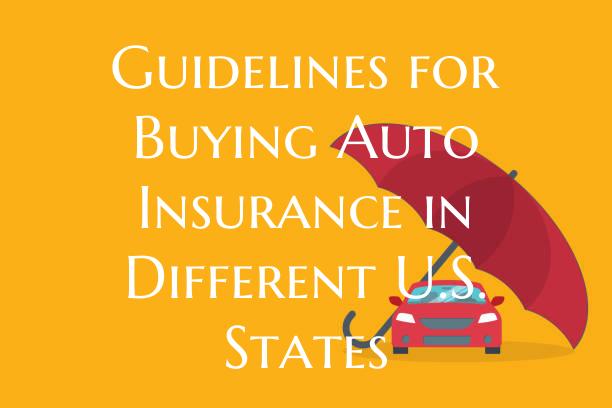When it comes to buying auto insurance in the United States, it's important to keep in mind that each state has its own set of rules and regulations governing insurance coverage. Understanding the guidelines specific to your state can help you make an informed decision about the type and amount of auto insurance you need.
1. Minimum Coverage Requirements: One of the first things to consider when buying auto insurance in any state is the minimum coverage requirements. These requirements vary from state to state, so make sure you are aware of the minimum liability coverage limits mandated in your state. This typically includes bodily injury liability and property damage liability coverage.
2. Additional Coverage Options: In addition to the minimum coverage requirements, you may also want to consider purchasing additional coverage options such as collision, comprehensive, uninsured/underinsured motorist, and personal injury protection (PIP) coverage. These coverages can provide added financial protection in the event of an accident or other covered incident.
3. Comparison Shopping: Just like with any other type of purchase, it's important to shop around and compare quotes from multiple insurance providers. Rates can vary significantly between companies, so taking the time to compare prices and coverage options can help you find the best insurance policy for your needs and budget.
4. Consider Your Driving Habits: Your driving habits and history can also impact the cost and availability of auto insurance in your state. Factors such as your age, driving record, and the make and model of your vehicle can all influence your insurance rates. Be sure to provide accurate information to insurance providers to get an accurate quote based on your individual circumstances.
5. Understand State-Specific Laws: Different states have different laws regarding auto insurance, so it's important to familiarize yourself with the specific regulations in your state. This includes requirements for reporting accidents, filing claims, and resolving disputes with insurance companies. Knowing your rights and responsibilities as a policyholder can help you navigate the insurance process more effectively.
By following these guidelines for buying auto insurance in different U.S. states, you can ensure that you have the coverage you need to protect yourself and your vehicle on the road. Remember to stay informed about your state's insurance requirements and options, and don't hesitate to seek guidance from insurance professionals if you have any questions or concerns.

